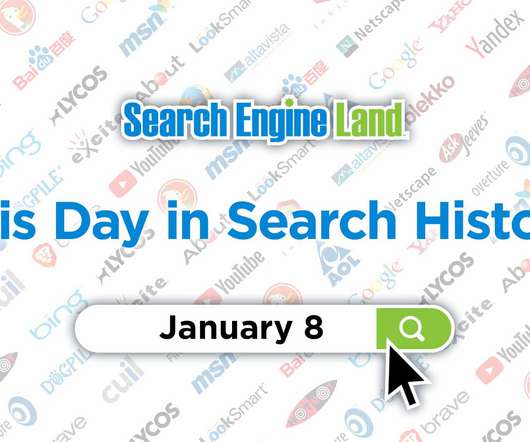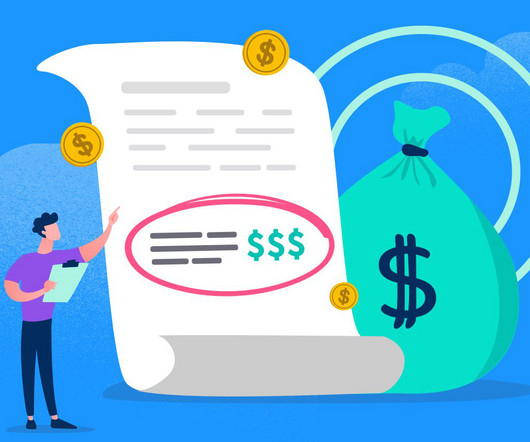This day in search marketing history: January 8
Search Engine Land
JANUARY 7, 2023
2020: Page owners could use Bing Pages to aggregate social media links, publish contact details, customize Outlook profiles with images and content and promote social media posts. Utah Has Highest Google Usage, West Virginia The Lowest. Apparently In Limbo, As Contract Running Out. Yahoo’s News Digest App Is “Summly 2.0”.













Let's personalize your content